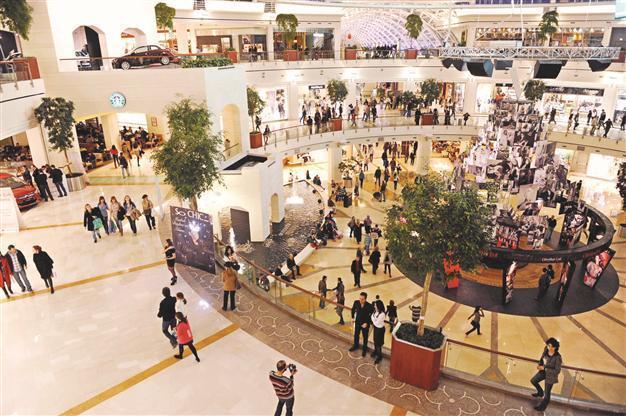Shopping malls to replace cinemas
ISTANBUL - Hürriyet Daily News

Movie theaters at Istanbul’s shopping malls gain popularity in recent years against Beyoğlu theaters, which are closing down one by one. DAILY NEWS photo/Emrah Gürel
Istanbul’s historical cinema theaters are losing popularity as modern movie theaters with plush reclining seats and multiple screens pop up in shopping malls across the city.Interest in individual movie houses, an integral part of Beyoğlu’s identity and culture, continues to decline every day, according to Anatolia news agency. Establishments such as Taksim’s Emek Cinema, Alkazar and Sinepop, known collectively as “Cadde-i Kebir Cinemas,” are losing the battle to draw customers against the increasing popularity of shopping mall movie theaters.
The future of historical movie theaters does not look bright, but there is still hope, according to Cinema Writers’ Association founding member Atilla Dorsay.
While the famous theaters of Beyoğlu, like Atlas and FİTAŞ still continue to host large audiences, Emek and Alkazar will be open in a few years with new projects supported by the private sector.
“Every city is rentable. Paris, London, New York, everywhere is rentable. But look at Paris. There is still a place called ‘Rue Champollion’ and old cinema theaters. No one wants to build shopping malls instead of old cinema theaters,” Dorsay said, adding that cinemas should renovate themselves if they hoped to survive.
In an effort to find ways to survive against larger movie theaters cinemas that were closed could have become repertoire cinemas, screening classics and old cult films, Dorsay said. “There are many examples in France,” he said, noting that this model could be applied to Alkazar.
However, societal support is needed in order to protect the old cinemas. Emek Cinema, for example, only survived thanks to local proponents. Earlier in 2012, The Istanbul Culture and Arts Foundation (İKSV) outlined a vision for the historical theater in which the building would be saved from demolition so that it could remain a cinema and cultural center.
“The remaking of the project and the restructuring of the building should be shared with the public. That’s why, given the fragile situation, İKSV aims to make the venue a non-profit center for arts and culture,” the foundation said in a written statement. “The aim is to solve the problem of Istanbul’s cultural heritage and contribute to the arts and cultural life in a venue that is still ‘alive’ with cinema,” the statement read.
The construction firm and architect responsible for the renovation of Emek and the adjacent Cercle d’Orient building have dismissed recent concerns raised by the Chamber of Architects regarding an alleged plan to demolish the theater and move parts of it elsewhere, the Hürriyet Daily News reported Jan. 10.
The İKSV also said that it hoped the new venue they aimed to create would meet the needs of artistic life in Turkey and would be open to different artistic disciplines.
“First of all, we think that the renewal project’s main aim should be discussed. For us, the right way is to do feasibility work with the cultural associations and institutions and make a long-term project with a non-profit venue,” the statement said, adding that it will take public and private capital to realize the project and that it had already made its appeal to the relevant ministries.
Closing of Sinepop
One famous symbol of Beyoğlu’s cinema culture, Sinepop, will close by the end of November, but the fact that many cinemas found nearby in ancient, historical buildings leaves hope for Sinepop’s reopening, according to Dorsay.
According to Dorsay, education centers like schools and universities should also feel responsible for the future of these classic cinema houses. During film festivals some of the cinemas become very popular. “We see a full thater for 15 days, but later on no one visits them,” Dorsay said. “The support system is not working accurately,” Sinepop staff member Adnan Şapçı told Anatolia news agency. No one is placing importance on the old cinema houses, Şapçı said. Temel Kerimoğlu, manager of Beyoğlu Theater, the last and most famous movie theater of Beyoğlu, said they were the last cinema to resist the shopping mall trend. “We expect support from newspapers or else we are going to close.”.
Shopping malls also take on art galleries and museums in Turkey
Hosting an art exhibition in a mall or using a shopping mall as an art space became a trend as urbanization grew and almost every artist began to use such spaces to reach a wider audience. Instead of museums or art galleries, light installations, oil on canvas works, sculptures and performance art have all found a new, rather unexpected place to be showcased: shopping malls. As population growth in cities becomes more integrated with consumer culture, art has evolved to take over new spaces, becoming more visible through placement in shopping malls.
Turkish artists Genco Gülan and İsmail Acar opened shows at various malls in Istanbul and American artist Julian Opie setup his LED walking man and woman at a public space outside a mall. In the United States, artists gathered at the Aventura Mall 10 miles north of Miami Beach for a contemporary public art collection that was being constructed. Jorge Pardo and Lawrence Weiner made unique installations for the exhibition.
















